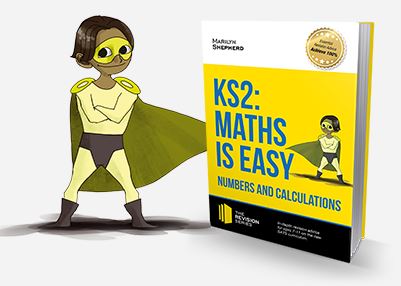
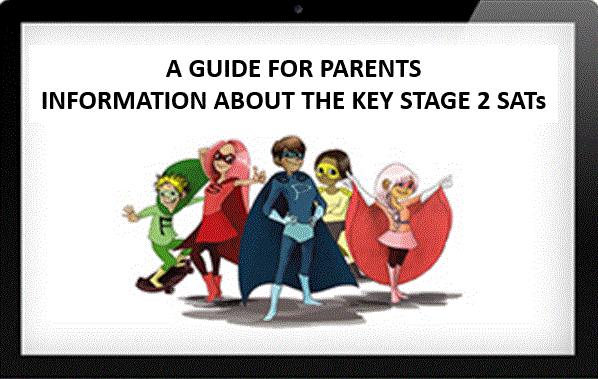
Whilst SATs are a daunting, disliked and let’s be honest, boring concept; they remain an imperative part of children’s education.
Children should be provided with the best tools and practice to enhance their intellectual ability and improve their performance.
The blog will guide you through Key Stage 2 SATs, and will share with you all the important information, advice and tips you will need for you and your child to obtain successful SATs results.
Is your child about to undergo their Key Stage 2 SATs exams?
As a parent/guardian, it is your job to make sure that your child is fully prepared for their exams. Of course, ultimately, it is down to each child in regards to how much they are willing to learn. However, have you ever noticed that when your child comes home from school, and you ask what they’ve been learning, you get a very vague response? Well, you are not alone!
That is why I have put together this guide for SATs information for parents 2018.
In 2016, the Government made some changes to the way that Key Stage 2 SATs were taught and assessed. A year later, and the new SATs have been in full swing.
The aim of the new Key Stage 2 SATs was to ensure a fairer and more advanced way of assessing pupils. It was thought that the previous SATs were too easy, and that the exams needed to be modified in order to assess children to a higher standard.
The purpose of the new and revised SATs is to ensure these tests remain rigorous and therefore, proving to be of a much higher standard to previous SATs.
Ultimately, your child’s scores in their SATs will be used in conjunction with classroom assessments, in order to provide a general overview of a child’s attainment and progression during that academic year.
For more information on the new national curriculum, please visit the Official Government website.
Make a note of the following dates. These dates are the scheduled exam dates which your child will sit their SATs.

Please note, as the subject of Science is only assessed on a biennial sampling, a Science sampling won’t be taken in 2017. This was sampled last year, and will recommence in the year 2018.
For more key dates and information regarding the Key Stage 2 SATs, please visit the Government website.
Key Stage 2 SATs are a great way to mark your child’s progress. SATs allow teachers, and you, to learn about your child’s strengths and weaknesses.
As a parent, your main objective is to see your child make the most out of all their opportunities. Education is a stepping stone into the wider world, and will therefore set your child up to go on to greater things. That is why learning from a young age will greatly benefit them in the long run. The more academic skills and knowledge they gain, the better scores they will achieve, and therefore the more options are available to them when it comes to choosing a career.
As a teacher, they can assess children based on not only individual performance, but performance as a whole. They can determine whether a child is lagging behind, or exceeding expectations, based on their peers and last year’s results.
The national curriculum for Key Stage 2 SATs will consist of the following:
- English Reading
- English Grammar
- Punctuation and Spelling
- Mathematics
- Science (sampling test every other year)
ENGLISH READING
Your child will need to complete a Key Stage 2 English Reading SAT.
What does the paper consist of?
For the English Reading SAT, your child will need to complete a single paper which contains questions based on three passages.
How long does the paper take?
Your child will be given 1 hour to complete the test, and this includes:
- Reading time
- Answering the questions
What will the questions look like?
There are a range of different types of question that your child will be expected to answer during the English Reading SAT. These questions will assess some or all of the following:
- Short constructed responses – picking out bits of information from the passage in order to answer the question.
- Ranking and ordering – questions may ask you to rank the events according to when they happened in the passage.
- Open-ended responses – questions that ask you to explain your answers using the passage as guidance.
ENGLISH GRAMMAR
Your child will need to complete a Key Stage 2 English Grammar SAT exam.
What does the paper consist of?
For the English Grammar SAT, the test will consist of two parts: a grammar and punctuation paper and an aural spelling test.
How long does the paper take?
For the grammar and punctuation paper, your child will be given 45 minutes.
For the aural spelling test, your child will have approximately 15 minutes to complete the assessment.
What will the questions look like?
For the grammar and punctuation paper, it will contain questions based on the following:
- Identification – being able to identify or pick out key words from the sentence. This includes being able to distinguish between adjectives, nouns, verbs etc.
- Constructed responses – the ability to correct or rewrite a sentence in order for the sentence to be grammatically correct.
For the spelling test, your child will be given a list of 20 words which they will need to spell correctly. These words will be of a variety of difficulty levels.
MATHS
Your child will need to complete a Key Stage 2 Maths SAT exam.
What does the paper consist of?
For the Maths SAT, the test will consist of three papers:
- Paper 1 – arithmetic
- Papers 2 and 3 – reasoning
How long does the paper take?
For paper 1, the arithmetic section, your child will be given 30 minutes to complete the test.
For papers 2 and 3, the reasoning sections, your child will be given 40 minutes to complete each paper.
What will the questions look like?
For paper 1, questions will require pupils to use addition, subtraction, multiplication and division in order to solve calculations. Other mathematical calculations may be required in order to complete this section.
For papers 2 and 3, will contain varied questions, including:
- True of false questions
- Multiple choice questions
- Drawing shapes or completing diagrams
- Explaining how they reached their answers
SCIENCE
Not all children completing the SATs will sit a Science exam.
A selection of schools will be required to partake in a science sampling, every other year. The sample selected is thought to be representation of Key Stage 2 as a whole.
What does the paper consist of?
If your child does need to sit the KS2 Science SAT, the test will consist of the following:
- Biology
- Chemistry
- Physics
How long does the paper take?
For the biology paper, your child will be given 25 minutes to complete the assessment.
For the chemistry paper, your child will be given 25 minutes to complete the assessment.
For the physics paper, your child will be given 25 minutes to complete the assessment.
What will the questions look like?
For the biology paper, questions will be based on the following:
- Humans
- Plants
- Animals
For the chemistry paper, questions will be based on the following:
- Materials
- Solids, liquids and gases
For the physics paper, questions will be based on the following:
- Electricity
- Energy forces
- Space
- Sound and light
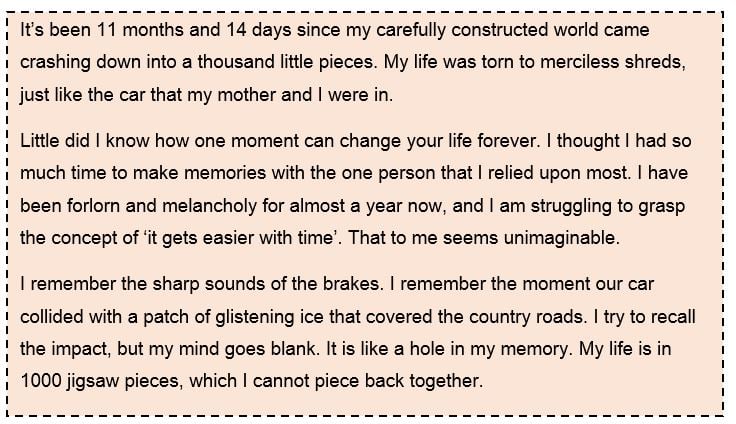
Question 1
Which of the following reasons best describes why the passage is written in first person?
a) The reader wants to put their views across.
b) It’s an account of the author’s experience.
c) It is an account of events, creating an emotional relationship with its readers.
d) Provide a sense of belonging and reassurance.
Question 2
“My life is in 1000 jigsaw pieces, which I cannot piece back together” (line 12/13). What literary technique is used in this sentence?
a) Simile
b) Oxymoron
c) Analogy
d) Pathos
Question 3
Add a suffix to each noun to make an adjective:
a) mystery
b) nature
c) mess
d) rust
e) accident
Question 4
What does the root ‘struct’ mean in the word family below?
destruction structure reconstruct
a) break
b) build
c) carry
d) touch
Question 1
Work out 127 x 2
Question 2
Below is a scale of Anil’s garden.
What percentage of Anil’s garden is covered by the pond?
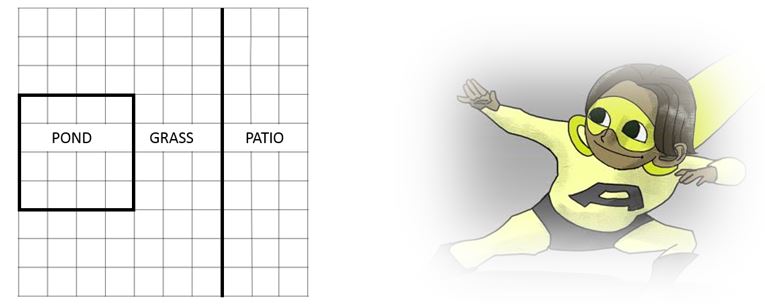
In order for your child to score highly in their Key Stage 2 SATs, you need to ensure that they have everything they need to achieve high marks!
It is important that you and your child are fully aware of what the SATs consist of, and you know what to expect when that all important time comes in their schooling.
Below I have created a list of GOLDEN NUGGETS that will help YOU and your CHILD to prepare for the Key Stage 2 SATs.
GOLDEN NUGGET 1 – Revision timetables
When it comes to exams, preparation is key. That is why you need to sit down with your child and come up with an efficient and well-structured revision timetable in order to make the most out of revision time.
It is important that you work with your child to assess their academic weaknesses and strengths in order to carry out these revision sessions successfully.

GOLDEN NUGGET 2 – Understanding the best way your child learns
There are loads of different ways to revise when it comes to exams, and it all comes down to picking a way that your child will find most useful.
Below is a list of the common learning styles that you may want to try with your child:
- Visual – use of pictures and images to remember information.
- Aural – the use of sound and music to remember information.
- Verbal – the use of words, in both speech and writing, to understand information.
- Social – working together in groups.
- Solitary – working and studying alone.
Popular revision techniques include; mind mapping; flash cards; making notes; drawing flow charts and diagrams. You could instruct your child on how to turn diagrams and pictures into words, and words into diagrams. Try as many different methods as possible to see which is most successful for your child’s learning style.

GOLDEN NUGGET 3 – Break times
Allow your child plenty of breaks when revising.
It’s really important not to overwork your child, particularly for tests such as the SAT which are not marked on a pass or fail basis.

GOLDEN NUGGET 4 – Practice, practice and more practice!
Purchase past practice papers. Although the curriculum will have changed for 2016, practice papers are still a fantastic way for you to gain an idea of how your child is likely to be tested.
GOLDEN NUGGET 5 – Stay positive!
The most important piece of preparation advice we can give you is to make sure that your child is positive and relaxed about these tests.
Don’t let the SATs worry you, and certainly don’t let it worry your child.

English
Question 1
C = It is an account of events, creating an emotional directness with its readers.
EXPLANATION = first person narration is often used to create an emotional response with its readers, which draws them into a specific voice or personal situation.
Question 2
C = analogy
EXPLANATION = the author uses a puzzle as an analogue for life, whereby you have certain pieces that make up your life in order to complete it. The author suggests that trying to find the missing pieces can be extremely difficult, just like when you encounter difficult times and need to work through them.
Question 3
- Mysterious
- Natural
- Messy
- Rustic
- Accidental
Question 4
B = build
Maths
Question 1
254
Question 2
16%
For more Key Stage 2 SATs resources, take a look at our Key Stage 2 guides!
 Key Stage 2 – Data and Statistics
Key Stage 2 – Data and Statistics
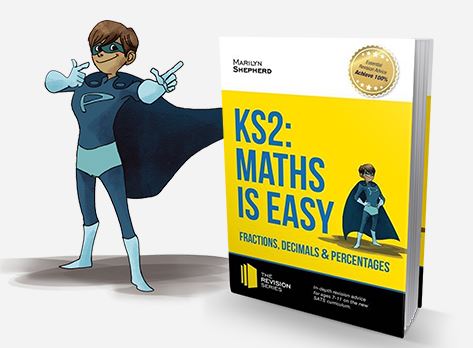 Key Stage 2 – Fractions, Decimals and Percentages
Key Stage 2 – Fractions, Decimals and Percentages
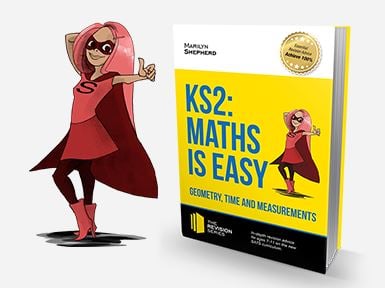 Key Stage 2 – Geometry, Time and Measurements
Key Stage 2 – Geometry, Time and Measurements
